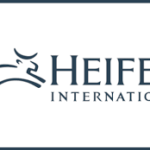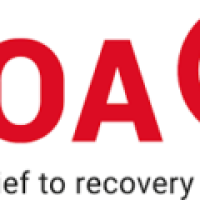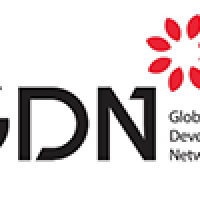Heifer International, in partnership with the Mastercard Foundation, is implementing the SAYE project in Busoga sub-region, Eastern Uganda. The intervention is implemented in 11 districts: Jinja, Mayuge, Iganga, Kamuli, Kaliro, Namutumba, Bugweri, Luka, Buyende, Namayengo, and Bugiri. The project is implemented in a consortium with 4 other local organizations, namely: Consortium for Enhancing University Responsiveness to Agribusiness Development Ltd (CURAD), Federation of Small and Medium Enterprises (FSME), Financial Sector Deepening Uganda (FSDU), and ASIGMA Group. SAYE is built on the learnings from the ‘East Africa Youth Inclusion Program – EAYIP’ that was implemented by Heifer Project International from July 2016 – March 2022, where lessons informed deliberate interventions of transitioning Youth to work. SAYE has a broader target of 250,000 disadvantaged youth in three categories – unskilled youth in farming households, youth with limited skills running small agribusiness enterprises/ in wage employment, and youth interested in starting agri-enterprises – thus enabling impact at scale.
Project Goal and Objectives
The goal of SAYE is to improve the socio-economic well-being and resilience of young people in Busoga sub-region by 2029. The intervention targets to reach 250,000 young people aged 16- 35 years (70% females and 30% male, among whom 3% are youth living with disabilities). Within the total target, 175,000 young people are expected to transition into dignified and fulfilling work within the agribusiness enterprises. The target value chains include poultry, horticulture, oilseeds, dairy, and beef. These value chains offer potential for economic, gender, and social inclusion because they have low entry barriers and address the specific needs of young people, especially those limited by low inputs, land, capital, and skills, yet offer job opportunities for regular and sustained income. They have ready local and regional markets, offer employment opportunities, and have potential for import substitution. This is in addition to market attractiveness, impact potential, inclusiveness, and conservation potential. They provide youth and women-centric business models that can deliver green jobs and pull young people into dignified and fulfilling market-oriented employment opportunities, and therefore a need to have hands-on independent consultants to provide technical assistance and support youth training.
Scope and focus of the assignment:
The overall purpose of this consultancy assignment is to provide on on-farm and enterprise-based technical-agribusiness support and provide expertise and guidance to farmer groups and agri-enterprises on all aspects of livestock management. The scope of work includes advising on animal health, nutrition, breeding, and sustainable farming/production practices, building a vibrant community-based extension system, as well as helping farmer groups and agri-enterprises navigate biosecurity, regulatory standards, and access markets. The expert will also play a role in knowledge sharing, developing/reviewing training materials, delivering ToT training, on-site technical support, and promoting best practices within the livestock sector.
Specifically, the livestock expert will:
- Technical support and hands-on support: Providing advice on disease prevention, treatment, and maintaining optimal animal health and welfare standards. Lead in addressing all aspects of livestock production and build a vibrant, private sector-led, community-based extension system with a large team of subject matter experts and frontline extensionists, located in the project areas.
- Livestock Nutrition and Feeding: Developing feeding regimes and strategies to ensure animals receive proper nutrition, considering factors like breed, age, and production goals.
- Breeding and Genetics: Offering guidance on selecting appropriate breeding stock, understanding genetics, and implementing breeding programs to improve herd or flock characteristics.
- Sustainable Practices: Promoting environmentally friendly and sustainable farming practices, including pasture management, waste management, and minimizing the environmental impact of livestock production.
- Business Management: Support project participants to adopt a farming system that represents a proper combination of farm enterprises and the resources available to the farmer to raise them for profitability. Provide advice and develop tools on record-keeping, financial planning, and marketing strategies to improve the profitability of livestock businesses.
- Regulatory Compliance: Ensuring youth farmers understand and comply with relevant regulations related to biosecurity, zoonosis, animal welfare, food safety, and environmental protection.
- Knowledge Sharing: Contribute to internal and external knowledge development, ensures lessons learned are harvested, documented, communicated, and applied in daily practice, and may be appointed as (national) focal point of an expertise network.
- Market Access: Assisting clients in identifying and accessing markets for their livestock and livestock products.
- Sector coordination. Build strong collaboration with livestock actors in the region from public and private sector, keep track of new development and trends to inform learnings and adaptations











